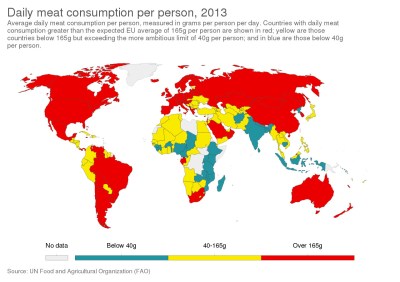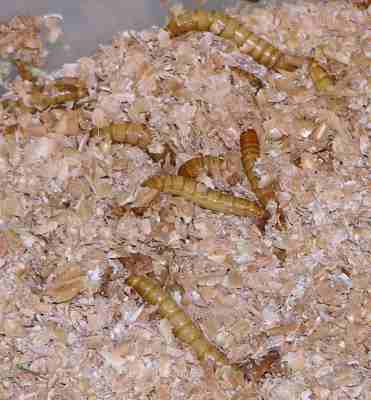Would You Like Fries With Your Insect Burger, Ma’am?
A trip to a supermarket is a rare luxury in a pandemic lockdown, but were I to cruise the aisles with my basket today I’d probably come away with a healthy pile of fruit and veg, a bit of meat and fish, and maybe some cheese. My shopping basket in 2031 though might have a few extras, and perhaps surprisingly some of them might be derived from insects. That’s a future made a little closer, by EU scientists declaring that farmed insect products are safe for humans and animals to eat.

We humans, like some of our fellow great ape cousins, are omnivores. We can eat anything, even if we might not always want to eat some things twice. As such, the diets of individual populations would in the past have varied hugely depending on the conditions that existed wherever they lived, giving us the ability to spread to almost anywhere on the planet — and we have.
Over the past few hundred years this need to subsist only on foods locally available has been marginalized by advances in agriculture. For those of us in developed countries, any foodstuff that takes our fancy can be ours for a trivial effort. This has meant an explosion of meat consumption as what was once a luxury food has become affordable to the masses, and in turn a corresponding agricultural expansion to meet demand that has placed intolerable stresses on ecosystems and is contributing significantly to global warming. It’s very clear that a mass conversion to veganism is unlikely to take place, so could farmed insects be the answer to our cravings for meat protein? It’s likely to be a tough sell to consumers, but it’s a subject that bears more examination.
Your Tasty, Nutritious, And Wriggy Friend!

Before any reader imagines chowing down on a creepy-crawly, it’s worth pointing out that the insects in question are likely not to be winged and legged adults staring back at would-be diners. Instead this is a story of an alternative protein source. These would almost certainly be larvae, the earlier stage in an insect lifecycle, dried and processed into other foodstuffs. So we may eventually eat a hamburger made from insect protein, for example.
The species most often named as a candidate is the mealworm, a beetle larva that is particularly easy to breed and which can be fed on readily available by-products of the cereal industry such as wheat bran. They are so straightforward to farm that it can be done at home, but even when scaled up to a commercial size facility they take up a fraction of the land and water resources required to farm the equivalent volume of livestock protein.
Don’t Get EU Scientists Started
The research paper from the EU scientists presents a detailed analysis of dried mealworm larvae, both whole and ground to a powder. For a non-food-scientist it’s an eye-opener how much detail they go into when doing this work, but as consumers it’s important for us to know that levels of bacteria, toxic heavy metals, or other poisonous compounds are kept in check. After a detailed examination of the farming procedure, they conclude that properly treated mealworm products fed on appropriate food that doesn’t contain any such nasties present no risks when eaten. Of the batches they tested, some had as high as 58.9% protein and 27.6% fat, with the majority of the rest being dietary fibre in the form of chitin. Anecdotal evidence from the online research for this piece suggests they have a pleasant flavour, described by some as slightly nutty.
I grew up surrounded by farmland on a heavy clay soil that had traditionally been dairy land but which transitioned over the 1970s and 1980s to arable with the introduction of more efficient soil management tillage techniques. Today it grows acres and acres of cereal crops, but they are by and large not destined for your plate. Instead huge swathes of countryside provide the feed for indoor livestock rearing operations, a vast quantity of land produces a surprisingly small quantity of foodstuff. Growing up in a British farming community as I did I enjoy eating good-quality meat, but it’s a view I’ve progressively arrived at over the years that farming it in this way is by no means the most efficient way to make food from land, nor is it the most environmentally friendly. I’d prefer to eat smaller quantities of higher-standard beef than expect daily to eat beef that has been intensively farmed in this manner. The prospect of farmed insect protein fed on the by-products from food crops grown on that land is thus one that can only be a positive step, and I welcome the EU move as an early step in our making that change. The question is, who will be first to pop a bug-burger in their shopping basket?
Post a Comment